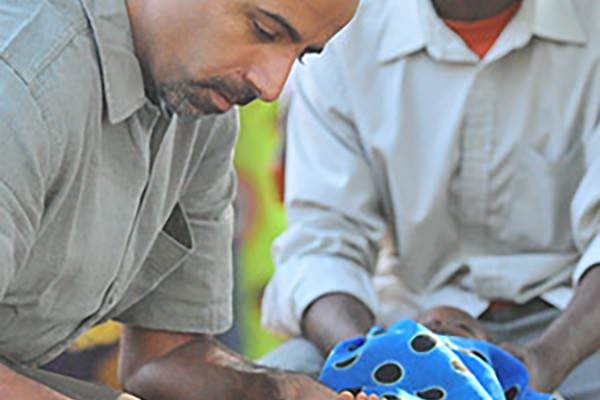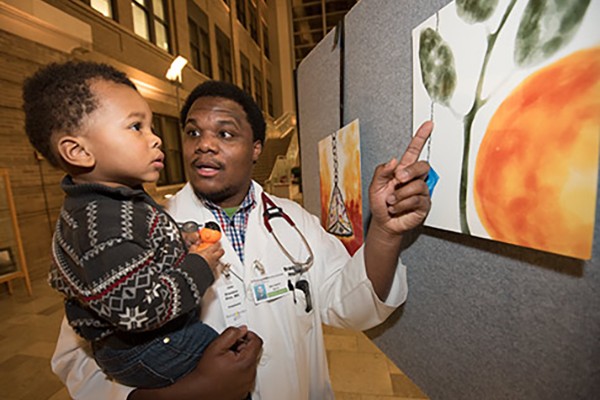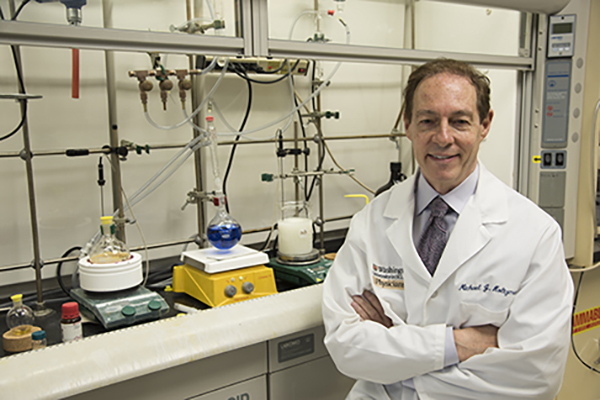New approach to childhood malnutrition may reduce relapses, deaths
Children treated for moderate acute malnutrition experience a high rate of relapse and even death in the year following treatment and recovery. A new study led by School of Medicine researchers has found that target weights and measures of arm circumference used in assessing the health of malnourished children are insufficient and that raising these thresholds could significantly lower the rate of relapse.
Kulkarni receives excellence award, grants
Shashikant Kulkarni, PhD, of Washington University School of Medicine in St. Louis, has received an award from the U.S. Department of Health and Human Services’ Agency for Toxic Substances and Disease Registry for excellence in partnering in “Next Generation Sequencing — Standardization of Clinical Testing.”
Duncan/Newstead intersection to close Feb. 25
Starting Feb. 25 and continuing for about two months, the intersection of Duncan and Newstead avenues will close as a Metropolitan Sewer District storm sewer line upgrade continues. Sections of Duncan east of Newstead have been closed during the project but will reopen when the intersection closes. Boyle is expected to reopen this spring.
Medical school art show illustrates range of talents
The School of Medicine’s 11th Annual Art Show is underway in the Farrell Learning and Teaching Center atrium on the Medical Campus. Visitors may view the art through Feb. 11.
IUD, implant contraception effective beyond FDA-approved use
New research shows that the hormonal intrauterine device (IUD) and the contraceptive implant remain highly effective one year beyond their approved duration of use, according to a study at Washington University School of Medicine in St. Louis.
$5 million funds research to develop drugs for common cold, respiratory diseases
A Washington University drug discovery program, led by Michael Holtzman, MD, has received three grants totaling more than $5 million to develop new medical therapeutics for respiratory diseases. The target illnesses range from the common cold to life-threatening lung disease.
Randolph receives NIH research grant
Gwendalyn Randolph, PhD, professor of pathology and immunology and of medicine at Washington University School of Medicine in St. Louis, has received a two-year, $419,271 grant from the National Institutes of Health (NIH) for research titled “Local Thermogenesis in Lymphatic Vessel/Node Function.”
Criteria expanded for annual Friedman Award
Nominations for the 2015 Harvey A. and Dorismae Hacker Friedman Award for Excellence in Service to Older Adults are now open to anyone within the St. Louis region who has made an outstanding contribution in service to older adults. The award is presented annually by the Harvey A. Friedman Center for Aging, part of the Institute for Public Health at Washington University in St. Louis.
Washington People: Shin-ichiro Imai
Shin-ichiro Imai, MD, PhD, is a professor of developmental biology and of medicine at Washington University School of Medicine in St. Louis. Over the past three decades, his research has shed light on the processes of aging and longevity as he has sought to help people maintain better health into later years.
URSA grants awarded to eight teams
The Office of the Vice Chancellor for Research has announced the eight winners of the 2014 University Research Strategic Alliance (URSA) grants. The URSA program aims to encourage new groups of investigators working on new research or using new approaches to solve problems.
View More Stories



